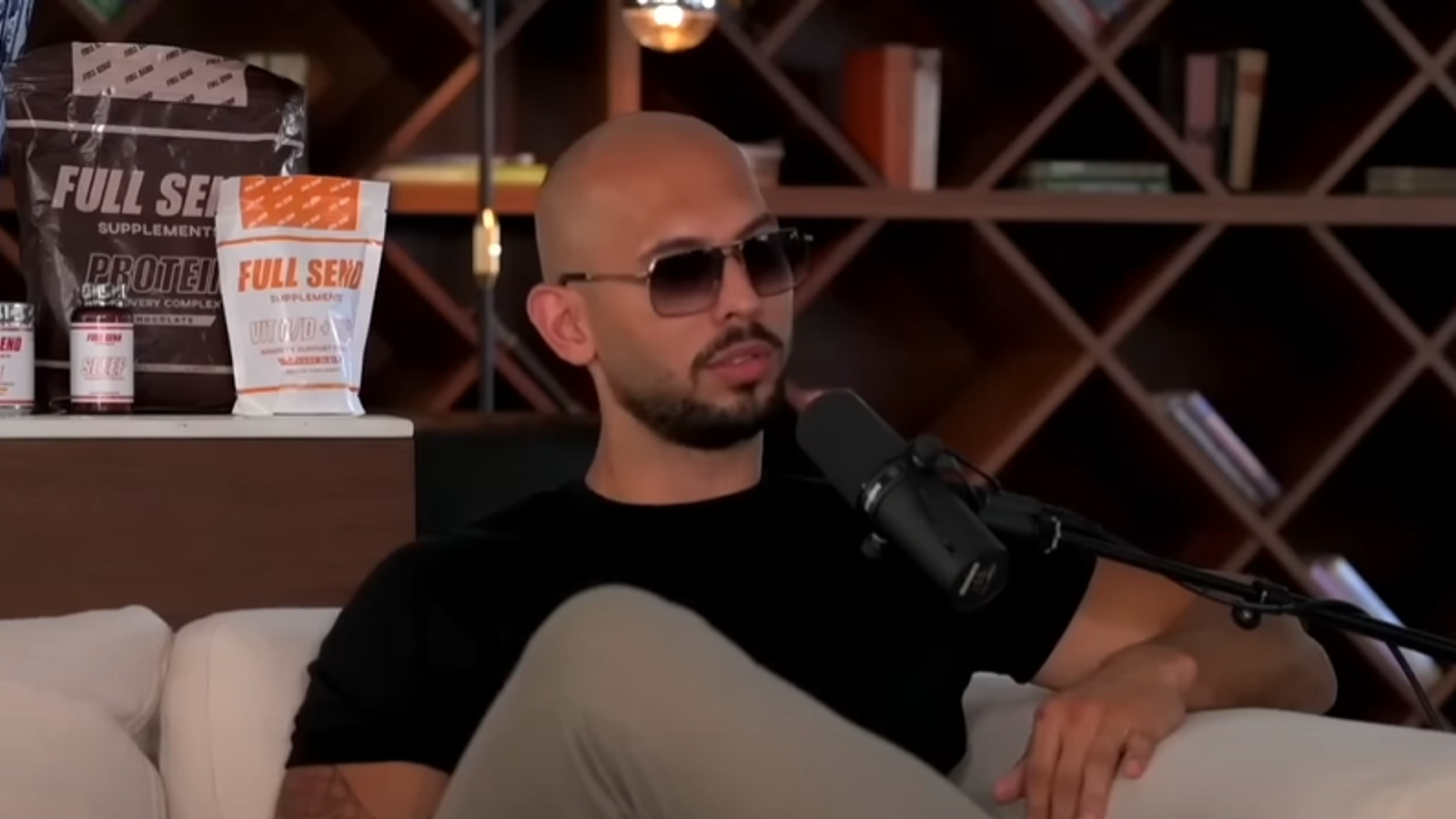Despite bans from all major social media sites, it’s hard to move on the internet without bumping up against Andrew Tate – but who is the kickboxer-turned-influencer, arrested in Romania on Thursday?
Tate’s rise to notoriety started when he was removed from Big Brother in 2016 over a video that appeared to show him attacking a woman with a belt – a clip he claims was edited.
On Thursday evening, he was arrested in Romania along with brother Tristan on suspicion of human trafficking, rape and forming an organised crime group, prosecutors have said.
But what happened in the intervening years, and how does a British-American kickboxer raised in Luton amass millions of followers, get teachers ringing alarm bells over misogyny in the classroom, and spark a row with climate activist Greta Thunberg?
Here’s everything you need to know.
Tate’s social media bans
Tate was banned from Facebook and Instagram in August for violating parent company Meta’s policies on “dangerous individuals”. He had 4.7 million Instagram followers before his official account was deleted.
He was banned days later from YouTube for breaching hate speech rules – but fan channels have filled in the gaps, posting videos that reach millions of views.
TikTok has barred him from having an account but content posted under the hashtag Andrew Tate has been viewed billions of times.
In November, analysis by the Center for Countering Digital Hate (CCDH) identified more than 100 TikTok accounts that frequently promote Tate’s content, with a total of 250 million video views and 5.7 million followers.
Twitter also banned him in 2017 for his misogynistic views and hate speech but reinstated his account last month following Elon Musk’s takeover.
Greta Thunberg row
Earlier in the week, Tate sparked a row with climate campaigner Greta Thunberg on Twitter when he shared a picture of himself standing next to a Bugatti and saying he owned 33 cars.
“Please provide your email address so I can send a complete list of my car collection and their respective enormous emissions,” he tweeted, tagging Ms Thunberg.
Ms Thunberg responded by saying: “Yes, please do enlighten me”, adding a fake email address mocking him and ending with the words “getalife.com”.
Tate hit back with a video telling Ms Thunberg to “get a life”. In the video he is smoking a cigar in a robe and is passed a stack of pizza boxes.
Some people on Twitter have speculated it was the pizza boxes that led the Romanian police to Tate as the local branding proved he was in the country, however this has not been confirmed by the authorities there.
His most controversial takes
Tate has suggested rape victims “bear some responsibility” for being attacked, said women “belong in the home” and referred to women as “property” of men.
Describing how he would react if a woman accused him of cheating, he said: “It’s bang out the machete, boom in her face and grip her by the neck.”
In a video explaining why he moved to Romania, he said “probably 40% of the reason” he moved was because it would be easier to evade rape charges.
He added: “I’m not a rapist, but I like the idea of just being able to do what I want. I like being free.”
Tate has also said he would rather date 18-year-olds than 25-year-olds because he can “make an imprint” on teenagers who have had fewer sexual partners.
In a 2017 tweet, he said: “Depression isn’t real. You feel sad, you move on. You will always be depressed if your life is depressing. Change it.”
Tate has denied holding misogynistic views and accused his critics of “twisting facts”, although he has also described himself as the “king of toxic masculinity”.
Hustler’s University
Tate founded online learning platform Hustler’s University, charging $49.99 a month for courses on money-making schemes such as dropshipping and investing in cryptocurrency.
The Guardian reported Tate’s Hustler University members were told to flood social media with videos of him, which was described by experts as a “blatant attempt to manipulate the algorithm” and artificially boost his content.
In less than three months, the strategy propelled him to viral fame and potentially made him millions of pounds, the report said. The “affiliate scheme”, which enabled members to earn commission by signing up members and posting content, closed in August, according to the Guardian.







